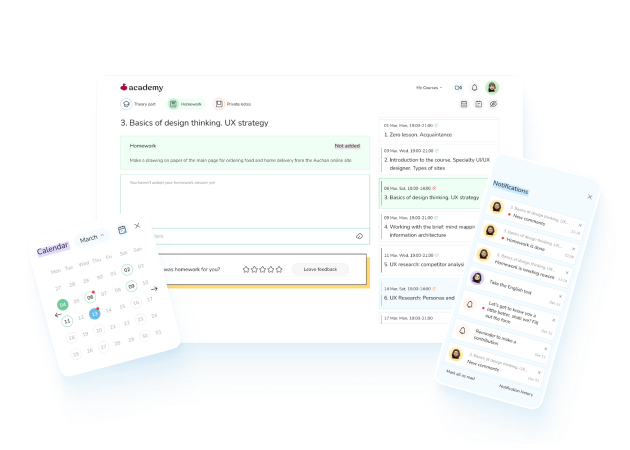Integration Testing Services for Seamless System Performance
Prevent failures before they happen. Detect system incompatibilities, broken data flows, and API issues — so everything works together smoothly and reliably.
-
Top 1%
of software development companies on Clutch
-
EU GDPR
commitment to security & privacy
-
60%
of business is based on customer referrals
-
ISO 27001
data security certification by Bureau Veritas
-
 EY EoY 2023
EY EoY 2023EY Entrepreneur of the Year in West Sweden
Why integration testing matters: Ensuring reliable system interactions.
When different parts of a system don’t communicate properly, failures happen — causing downtime, data loss, or security risks. Integration testing helps catch these issues early, making sure that APIs, databases, and third-party services work together as expected.
-
-
Prevents system failures
Software components often rely on each other to function correctly. The entire system can break down if one module fails to send or receive the correct data. Integration testing helps identify these weak points before they lead to costly outages or customer disruptions. -
Reduces debugging time
Bugs found late in development or in production take significantly longer to diagnose and fix. By testing early and continuously, integration testing catches errors while they are still manageable. This makes debugging more efficient and prevents small issues from escalating into major problems. -
Improves data flow reliability
Inconsistent or missing data can lead to incorrect calculations, user errors, or even security vulnerabilities. Integration testing verifies that information moves correctly across services, databases, and external APIs. -
Ensures smoother deployments
Deploying updates without testing integrations can introduce unexpected failures such as broken API calls, missing or incorrect data transfers, or incompatibility between new and existing components. These issues can lead to application crashes, incomplete transactions, or security vulnerabilities. By validating interactions between components in staging environments, integration testing minimizes risks before code goes live.
-
Common integration issues we detect
When systems don’t integrate properly, data inconsistencies, broken workflows, and performance bottlenecks can follow. Identifying these issues early prevents failures that impact users, security, and business operations.
-
– API failures and misconfigured endpoints
-
– Data mismatches between integrated systems
-
– Authentication and authorization errors
-
– Race conditions and timing issues
-
– Inconsistent error handling across services
-
– Performance slowdowns due to inefficient communication
Our Integration Testing Services
Achieve reliable system performance with expert-led integration testing. Whether you need API validation, data flow verification, or structured test automation, we help you engage the right integration testers to detect and resolve integration issues. Our hands-on approach ensures testing solutions are tailored to your system’s complexity.
-
Automated integration test suites
Automated integration testing helps catch integration issues early and reduces the need for manual testing. We assist in designing and implementing test suites that validate how different components interact and whether systems communicate as expected. By integrating these tests into your workflow, you gain a structured approach to detecting failures before they impact users.
-
API and third-party service validation
APIs and external services are critical to modern software, but misconfigurations or unexpected changes can lead to failures. We help you verify that your APIs send and receive the correct data, handle errors properly, and maintain compatibility with third-party services.
-
Data flow testing
Data inconsistencies can cause application errors, incorrect reporting, or security risks. We help you verify that information flows correctly between databases, applications, and external services. By identifying mismatches or broken data transfers, we ensure that your system remains reliable and that users receive accurate, up-to-date information.
-
Authentication & authorization checks
Access control issues can expose sensitive data or block legitimate users from accessing critical functionality. We test authentication mechanisms, verify token handling, and assess how different components enforce authorization rules. This helps prevent unauthorized access while ensuring that valid users can seamlessly interact with your system.
-
CI/CD pipeline testing
Continuous Integration and Continuous Deployment (CI/CD) rely on automated integration testing to maintain code quality and prevent regressions. We help integrate testing into your pipeline, preventing compatibility issues from new updates. This approach streamlines development and reduces deployment risks.
-
Performance and load testing
An integration that works under normal conditions may still fail under high load. We simulate different usage scenarios to assess how integrations perform under stress and identify bottlenecks before they impact users. By optimizing system performance, you get smooth operation even during peak demand.
-
Security testing for integrations
Poorly implemented integrations can introduce security risks, from data leaks to unauthorized access. We assess your system’s security posture by identifying vulnerabilities in data exchanges, API connections, and third-party integrations. Addressing these risks early helps safeguard sensitive information and maintain compliance with security standards.
-
Custom tech workshops
A well-trained team is key to maintaining a strong integration testing process. We offer hands-on workshops (1–3 days) tailored to your tech stack, helping developers, QA engineers, and non-technical staff build the skills they need. Whether focusing on automated testing, API validation, or CI/CD best practices, we create learning experiences that contribute to integration quality.
Achieve smooth app performance:
Example Tools & Technologies
Reliable integration testing requires the right tools to validate system interactions, data flow, and performance across different components. We use industry-standard frameworks to detect issues early and ensure seamless service communication.
-
Testing Frameworks
-
Selenium
-
Appium
-
JUnit/TestNG
-
Robot Framework
-
-
Scripting Languages
-
Python
-
Java
-
JavaScript
-
-
Operating Systems
-
Windows
-
macOS
-
Linux
-
-
Cloud Computing Platforms
-
AWS
-
Azure
-
Google Cloud Platform
-
Cooperation Types
Whether you need ongoing support, a structured testing plan, or tailored learning experiences, we offer flexible cooperation models. Our experts seamlessly integrate into your team to strengthen your integration testing processes.
-
Dedicated Teams
Your team extensionEngage skilled QA and testing engineers who become an extension of your in-house team. We provide specialists who work alongside your developers, ensuring continuous testing and streamlined system integration.
-
Project-Based Solutions
Reduced management overheadFor teams needing structured testing support, we help design and execute integration testing strategies for specific projects. From API validation to performance testing, we tailor our approach to your system’s complexity.
-
Custom Tech Workshops
Hands-on learningBased on your needs and goals, our workshops can cover API testing, automation strategies, and CI/CD best practices. We design training sessions that match your team’s skill level, ensuring practical, hands-on learning.
Meeting compliance standards with integration testing
Regulatory compliance requires software systems to handle data securely, maintain accuracy, and function reliably across all integrations. Integration testing helps organizations meet these requirements by validating data flows, API interactions, and system security. Through structured testing, businesses can achieve compliance with industry standards and obtain necessary certifications.
-
GDPR (General Data Protection Regulation)
Requires organizations to handle user data securely by implementing encryption and privacy controls to comply with European data protection laws.
-
ISO 27001 (Information Security Management System)
Focuses on implementing and maintaining security measures to protect sensitive business and customer data.
-
SOC 2 (Service Organization Control 2)
Verifies that systems handling customer data meet strict security, availability, processing integrity, confidentiality, and privacy requirements.
-
HIPAA (Health Insurance Portability and Accountability Act)
Required for healthcare organizations to secure patient data, ensuring medical records and health information are protected against breaches.
-
PCI DSS (Payment Card Industry Data Security Standard)
Mandates security practices for handling credit card transactions, reducing fraud risks and ensuring payment system integrity.
-
SOX (Sarbanes-Oxley Act)
Regulates financial reporting and internal controls to prevent fraud and improve the transparency of financial data management.
Integration Testing vs Unit Testing
Testing at different levels helps prevent software failures and improves system reliability. While unit testing verifies individual components, integration testing checks how they work together. Understanding the differences helps teams choose the right approach for their needs.
Which Testing Fits Your Project?
-
Unit Testing
- Focuses on testing individual functions, modules, or components in isolation.
- Helps catch small logic errors early in development before they impact other parts of the system.
- Runs quickly and is often automated, making it a core part of continuous development cycles.
-
Integration Testing
- Validates interactions between multiple components, services, and external systems.
- Detects issues like broken data flows, API failures, and communication errors.
- Essential for confirming that separate parts of an application work correctly as a whole.
Find the right experts for your integration testing needs
Building a reliable system requires the right team. Whether you need skilled QA engineers, test automation specialists, or integration testing experts, we help you engage professionals who fit your project. Send us your requirements, and let’s explore how we can support your team.
Industries We Cover
Reliable system integrations are essential across industries where data exchange, security, and performance are critical. We support companies in building robust digital solutions by ensuring their applications work smoothly across systems, services, and platforms.
-
Healthtech
In healthcare, patient records, diagnostics, and telemedicine platforms must integrate flawlessly. We help validate integrations between medical software, patient databases, and compliance systems to maintain data integrity, security, and regulatory compliance. By automating data entry and ensuring real-time access to patient information, integration testing enhances workflow efficiency and reduces administrative burdens.
-
Greentech
Sustainable technology solutions depend on interconnected platforms for energy monitoring, IoT devices, and environmental data analysis. Our testing services verify data flow between sensors, automation systems, and analytical tools and facilitate real-time tracking and optimization of energy and resource usage. By identifying potential integration issues early, we help prevent inaccurate reporting, uphold environmental regulations, and enhance operational efficiency.
-
Fintech
Financial applications require secure transactions, real-time data processing, and effective API integrations. We assess banking platforms, payment gateways, and risk management systems to confirm compliance, prevent data inconsistencies, and protect user transactions from security threats. Given the high volume of transactions in financial platforms, our integration testing maintains system resilience under heavy loads, reducing latency and preventing costly transaction failures.
-
Edtech
Education platforms require seamless integrations between learning management systems, video conferencing tools, and student data portals. We test system interactions to ensure accessibility, optimize performance, and safeguard sensitive student and faculty data. As digital learning environments become more interactive and data-driven, integration testing ensures that adaptive learning technologies, AI-driven assessments, and collaborative tools function reliably across multiple platforms.
-
Enterprise Software & SaaS
Enterprise applications integrate with various internal and external services, from CRM and ERP systems to cloud-based solutions. We verify data consistency, system performance, and API compatibility to prevent downtime, maintain business operations, and improve user productivity. In complex enterprise ecosystems, our integration testing supports automation, allowing businesses to scale efficiently while maintaining security and operational stability.
Our Integration Testing Process: Step-by-Step Approach
-
Planning & Scope Definition
This stage involves identifying system components, dependencies, and testing priorities based on the project’s requirements. Teams define test objectives, determine key data flows, and establish success criteria to guide the testing process.
-
Test Environment Setup
A controlled environment replicating real-world conditions is necessary to detect integration issues early. This includes configuring databases, APIs, and third-party services, as well as setting up necessary testing tools. Proper setup helps minimize inconsistencies between testing and production environments.
-
Test Case Development
Well-defined test cases outline how different components should interact. These include scenarios for data validation, API communication, and error handling across multiple systems. Writing structured test cases leads to consistency in execution and thorough coverage of possible integration failures.
-
Execution & Bug Detection
Tests are run to validate system interactions, identify broken data flows, and detect communication errors between components. Both automated and manual tests help uncover inconsistencies, while test logs and reports document failures for further investigation. Capturing these issues early helps prevent larger problems in production.
-
Issue Resolution & Retesting
After identifying defects, developers make necessary fixes and adjustments to integrations. Once updates are implemented, tests are re-executed to confirm that issues have been resolved without causing new failures. This iterative approach helps maintain system stability throughout development.
-
Final Validation & Reporting
A comprehensive review of test results ensures that all integration points function as expected. Teams analyze logs, identify remaining risks, and generate detailed reports for stakeholders. This final step confirms the system is ready for deployment with minimal risk of integration failures.
Why choose Beetroot as an integration testing services company?
Choosing the right testing partner means more than just finding expertise — it’s about working with a team that understands your business, technology, and long-term goals. At Beetroot, we offer tailored integration testing services that help ensure system stability, security, and compliance while aligning with your development process.
-
Tailored testing for your tech stack
Every system has unique integration points, and a one-size-fits-all approach doesn’t work. We design test strategies that align with your architecture, APIs, and databases, identifying potential weak spots before they become problems. This targeted approach minimizes risks and improves the reliability of your system.
-
Effortless team integration
Our specialists work as an extension of your in-house team, providing hands-on support without disrupting your workflows. Whether you need dedicated testers or additional expertise for a specific phase, we adapt to your processes. This collaborative approach helps testing contribute to development progress rather than causing delays.
-
Sustainable & ethical tech practices
Beetroot is committed to sustainability, both in business and technology. We support energy-efficient infrastructure, work with environmentally responsible partners, and prioritize long-term, ethical digital development. By choosing us, you’re partnering with a company that values sustainability in tech.
-
Focus on security & compliance
Integration failures can introduce security vulnerabilities and compliance risks. We test for data integrity, access control, and regulatory requirements such as GDPR, HIPAA, and PCI DSS, helping businesses stay compliant. Our structured approach helps protect sensitive data and maintain user trust.
-
End-to-end testing expertise
From planning and test case development to execution and reporting, we cover all aspects of integration testing services. Our structured approach helps teams detect issues early, reducing costly fixes later. With Beetroot, you get a comprehensive strategy that strengthens your software from the inside out.
-
Consistent quality across development stages
Software evolves rapidly, and testing must keep up at every stage. We provide continuous quality assurance throughout development, from early integration checks to final system validation. This proactive approach helps detect potential issues before they escalate, reducing rework and keeping releases on track.
What our clients say about us:
Hear from our clients about their experience working with Beetroot.
Featured Work
Successful integration testing goes beyond finding bugs — it helps businesses build reliable, high-performing systems. Explore how we’ve helped companies enhance software stability, optimize system interactions, and create frictionless user experiences through structured testing solutions.
Custom QA workshops: build stronger testing capabilities
Our custom workshops are designed to address your specific needs and help your team refine testing strategies, improve automation workflows, and strengthen overall QA expertise. Tailored to your tech stack and business needs, these hands-on sessions provide practical knowledge your team can apply immediately.
-
Tailored QA Practices
Every software ecosystem has its own challenges. Custom training focuses on your team’s specific tools for integration testing, workflows, and integration points, making learning directly applicable to daily operations.
-
Faster, Smarter Testing
Manual testing alone isn’t enough to keep up with rapid development cycles. Our workshops help teams build automation frameworks, optimize test execution, and reduce bottlenecks in CI/CD pipelines.
-
Better QA-Dev Collaboration
Integration issues often arise from misalignment between development and testing teams. Training sessions encourage a shared understanding of best practices, improving communication and reducing testing-related delays.
Let’s talk about your integration testing needs:
Have questions or need expert support? Fill out the form, and we’ll connect to discuss how our application integration testing services can help strengthen your system





